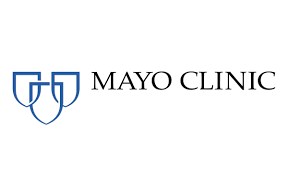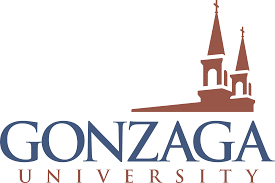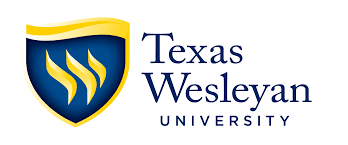With demand for anesthetists projected to rise by 2025, several schools opened Doctor of Anesthesia Practice degree programs. The knowledge foundation of this field demands presence on the campus as well as clinical training provided by various institutions.
So, you have few chances of landing a fully online program. If you are a licensed Certified Registered Nurse Anesthetist (CRNA) with a master’s degree, seriously consider an upgrade now.
______________________________
5 BEST DOCTOR OF ANESTHESIA PRACTICE (DR.ap) DEGREE PROGRAMS
INTEGRATED ANESTHESIA ASSOCIATES

DOCTOR OF NURSE ANESTHESIA PRACTICE (DNAP)
School Highlights: The Doctor of Nurse Anesthesia Practice at this outstanding institution of healthcare education is a full-time, 36-month Entry Level Program.
The Integrated Anesthesia Associates and Central Connecticut State University maintain an Academic Affiliation Agreement to provide this doctoral degree, giving students access to an enormous amount of fabulous educational and professional resources.
Individuals enrolled at IAA gain invaluable information and skills from Certified Registered Nurse Anesthetists and Board-Certified Anesthesiologists. Clinical experiences take place in a wide range of environments, which gives students a broader understanding of an exceedingly complex discipline.
Coursework Sample:
- Advanced Physical Health Assessment for Nurse Anesthetists
- Bioethics in Nurse Anesthesia
- Human Factors and Patient Safety for Nurse
Campus Location: Hartford, CT
Accreditation:
- New England Association of Schools and Colleges
- Council on Accreditation of Nurse Anesthesia
LEARN MORE ABOUT THE INTEGRATED ANESTHESIA ASSOCIATES’ DOCTOR OF NURSE ANESTHESIA PRACTICE DEGREE
MAYO CLINIC COLLEGE OF MEDICINE

DOCTOR OF NURSE ANESTHESIA PRACTICE PROGRAM
School Highlights: According to numerous reputable resources on higher education, such as U.S. News and World Report, the Mayo Clinic provides one of the best nurse anesthesia programs in the entire nation.
This college was founded in 1889 by Dr. William Worrall Mayo and has been educating nurses anesthetists for over 130 years. The doctoral degree takes 42 months to complete and provides an extensive and challenging, yet highly rewarding, nursing program.
The currently practicing, well-certified faculty members are internationally renowned for their research and practice in anesthesia. Professors work in collaboration with other experts throughout the country and the world to provide students with the most in-depth approach possible, as well as invaluable networking connections.
Coursework Sample:
- Physics for Anesthesia
- Inorganic, Organic, and Biochemistry for Anesthesia
- Cardiac, Vascular, and Thoracic Anesthesia
Campus Location: Rochester, MN
Accreditation:
- The Joint Commission
- Council on Accreditation of Nurse Anesthesia
LEARN MORE ABOUT THE MAYO CLINIC COLLEGE OF MEDICINE’S DOCTOR OF NURSE ANESTHESIA PRACTICE PROGRAM
GONZAGA UNIVERSITY

DOCTOR OF NURSE ANESTHESIA PRACTICE
School Highlights: A well-known and highly respected school, Gonzaga University offers a Doctor of Nurse Anesthesia Practice that is intended for nurses seeking advanced leadership roles.
The curriculum includes various topics in the development of innovative management approaches in a high-risk profession. Coursework draws from both the School of Anesthesia at Providence Sacred Heart Medical Center and Gonzaga’s School of Nursing and Human Physiology.
This gives students access to an enormous amount of top-quality resources and state-of-the-art equipment to develop their skills as nurse anesthetists. Gonzaga graduates now work in hospitals, medical offices, obstetric units, outpatient surgery centers, and military settings. This excellent school has maintained a 100% employment rate since 1979.
Coursework Sample:
- Medical Ethics
- Advanced Principles: Anesthesia Across the Lifespan
- Leadership and Quality Improvement
Campus Location: Spokane, WA
Accreditation:
- Northwest Commission on Colleges and Universities
- Council on Accreditation of Nurse Anesthesia
LEARN MORE ABOUT GONZAGA UNIVERSITY’S DOCTOR OF NURSE ANESTHESIA PRACTICE PROGRAM
EXCELA HEALTH SCHOOL OF ANESTHESIA & SAINT VINCENT COLLEGE

DOCTOR OF NURSE ANESTHESIA PRACTICE
School Highlights: Saint Vincent College and Excela Health work in tandem to deliver this highly competitive, 36-month doctoral degree in nurse anesthesia. Individuals develop new skills by working one-on-one with professors through clinical experiences that have real-world effects.
The degree is designed such that students develop strong professional and academic relationships with faculty, staff, advisors, and peers. SVC and Excela offer more than twenty clinical sites that span a vast range of healthcare environments, giving students broad skills to take into future experiences.
The curriculum emphasizes compassionate, coordinated care of anesthetized patients, and nurses re-enter the profession with highly refined skills and knowledge.
Coursework Sample:
- Advanced Human Anatomy, Physiology, and Pathophysiology
- Chemistry for Anesthesia Providers
- Healthcare Systems & Healthcare Economics
Campus Location: Latrobe, PA
Accreditation:
- Middle States Commission on Higher Education
- Council on Accreditation of Nurse Anesthetists
LEARN MORE ABOUT EXCELA HEALTH AND SAINT VINCENT COLLEGE’S DOCTOR OF NURSE ANESTHESIA PRACTICE DEGREE
TEXAS WESLEYAN UNIVERSITY

COMPLETION DOCTOR OF NURSE ANESTHESIA PRACTICE
School Highlights: Texas Wesleyan University offers a 100% online Doctor of Nurse Anesthesia Practice Completion Degree that includes three exciting concentration options. Both features make this program one of the most distinctive in the United States.
UTW also offers an Entry-Level DNAP that can only be completed in person and is available for students who prefer a live educational experience as opposed to a virtual one. The demands of the distance degree are different, and it is the student’s responsibility to maintain the discipline to complete the classes, coursework, and clinical hours independently.
However, the online approach provides more personal flexibility and freedom. Many prefer this option for that very reason. Students can carry on in their current practice while simultaneously earning their doctoral degree and putting the program information to use immediately.
Concentration Options:
- Education Administration
- Healthcare Administration
- Management
Campus Location: Fort Worth, TX
Accreditation:
- Higher Learning Commission
- Council on Accreditation of Nurse Anesthesia
LEARN MORE ABOUT TEXAS WESLEYAN UNIVERSITY’S COMPLETION DOCTOR OF NURSE ANESTHESIA PRACTICE
FREQUENTLY ASKED QUESTIONS
What does an Anesthetist do?
An anesthetist is a registered nurse who specializes in administering anesthesia safety. With rigorous training and education in anesthesia practice, a nurse anesthetist may give anesthesia to a patient and monitor the patient’s vital signs even without the supervision of an anesthesiologist.
In contrast to anesthesiologists – medical doctors who specialize in anesthesia, anesthetists play a supporting role to anesthesiologists during surgery. In times of great urgency, an anesthetist may assume temporarily the role of anesthesiologist in the best way they can while performing all their duties as a nurse.
What are the differences between a DNP and a DNAP degree?
The DNP (Doctor of Nursing Practice) is an advanced degree that focuses on clinical practice and research, whereas the DNAP (Doctor of Nurse Anesthesia Practice) is an advanced degree that focuses on the specialty of nurse anesthesia.
The DNP is meant to prepare nurses for roles in healthcare systems and organizations, while the DNAP focuses on advancing knowledge and proficiency in the practice of nurse anesthesia.
What sort of accreditation should I look for in a school?
The Council on Accreditation of Nurse Anesthesia Educational Program (COA) assesses the quality of education and training of institutions offering DNAP or DrAP degrees in the United States. You may also check if the school is closely affiliated with the American Association of Nurse Anesthetists (AANA).
How do I earn my DrAP degree?
If you want to pursue a Dr.A.P. degree, you need to have a master’s degree in anesthesia nursing and pass the Certified Registered Nurse Anesthetist (CRNA) licensure exam. Both of the requirements mentioned also have their prerequisites. First of all, you need to earn a Bachelor of Science in Nursing.
Then, you need to get licensed as a Registered Nurse (RN). After a year of experience as an RN, you may then proceed to enroll in a master’s program specializing in anesthesia. The CRNA exam comes after earning your master’s.
A typical Dr.A.P. curriculum involves 30 credits of coursework and a capstone project. Most institutions adopt a hybrid educational format both utilizing an academic setting and clinical practice. Here, graduate students learn in week-long classroom lectures and then supplemented by constant online communication with mentors.
If pursued full-time, a graduate student may earn a degree within one to two years. However, if a nurse studies on a part-time basis, he or she may finish within two to three years.
After the end of the course, Dr.A.P. graduates are well-equipped with the leadership skills required in clinical and educational environments. They are also well-versed in sophisticated hospital technologies and can communicate effectively with patients and medical professionals on anesthesia matters.
In recent years, the title “Doctor of Nursing Anesthesia Practice (DNAP)” has been more widely used than “Doctor of Anesthesia Practice” (Dr.A.P.). Those who graduated with a DrAP degree retain the title on their names.
The Dr.A.P./DNAP is the highest academic achievement for nurses along with the Doctor of Nursing Practice (DNP). While DNAP and DNP may sound similar, there is a slight difference between the two; the former being focused more on local and general anesthesia treatments.
While technically, DNAP is “doctors”, they are different from anesthesiologists who are Medical Doctors (MD) or Doctor of Osteopathic Medicine (DO). To avoid confusion, DNAP degree holders are formally called “doctors” in an academic or professional setting.
However, in a hospital or clinic, DNAP should be called “nurse” instead because patients normally are oblivious to the specific roles and credentials in the medical sphere.
What type of degree do I need to pursue research or educate others in Anesthesia Practice?
If you wish to teach in Anesthesia Practice, there is a Doctor of Philosophy in Nursing which a course focuses more on teaching and research on the field.
Like any other Ph.D. degree, Ph.D. in Nursing emphasizes creating new knowledge within the field with the dissertation as the crowning achievement. DrAP/DNAP degree holders are also qualified to teach as long as the work does not conflict with their clinical schedules.
How do I earn a transitional or bridge Dr.A.P degree?
Medical courses demand time and attention from students. Thus, a fully online program might be impossible. Some schools offer 100% online programs but most of them are not accredited by COA.
Most institutions adopt a hybrid format wherein a CRNA can continue working while regularly contacting their supervisor for the completion of the capstone project.
What kind of career and salary can I expect with my Dr.A.P degree?
Dr.A.P. degree holders mostly work in a hospital or clinic along with other nurses, doctors, and medical practitioners. Sometimes, anesthetists are deployed to remote communities during medical missions and disasters.
According to the BLS, as of 2022, an anesthetist in the US makes approximately $302,970 annually. The wage varies depending on location and experience. This figure is expected to increase by the year 2025 when DNAP will completely replace Master’s of Science in Nurse Anesthesia (MSNA). By this time, DNAP anesthetists share more of the functions of anesthesiologists.
Do I need a license to be an Anesthetist?
Today, a master’s degree is sufficient for an anesthetist to take a Certified Registered Nurse Anesthesia (CRNA) exam. However, as mandated by the National Board of Certification and Recertification for Nurse Anesthetists (NBCRNA), all aspiring CRNA need to earn a DNAP degree by the year 2025.
These changes were endorsed by the ANAA, aiming to improve the welfare of CRNA. Remember that you also need an RN license to acquire a CRNA license.
What schools offer Doctor of Anesthesia Practice (Dr.AP) degrees?
Considering the number of hospitals across the US, there is a multitude of options to choose from to acquire your Dr.A.P or DNAP degree.
The following institutions require full-time study for DNAP – Integrated Anesthesia Associates in Hartford, Connecticut; Mayo Clinic College for Medicine in Rochester, Minnesota; Gonzaga University in Spokane, WA; and Excela Health School of Anesthesia & Saint Vincent College in Pennsylvania.
Despite the intensive training demands, some accredited institutions like Texas Wesleyan University in Fort Worth, Texas offer affordable 100% online doctorate programs.
FINAL THOUGHTS
The job of an anesthetist is to relieve a patient’s pain and ultimately save lives. An anesthetist is a key player with an indispensable role in operating rooms, wards, and other emergencies involving pressure or pain. If you want patients to sleep soundly and help them make the pain bearable, becoming an anesthetist is your answer.
Additional resources:
